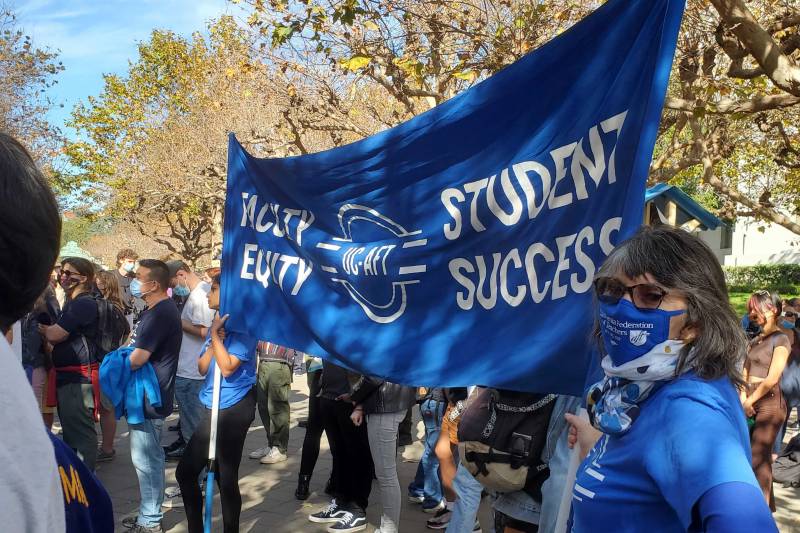“I expected today to come here and speak with anger and with disappointment in the way that bargaining had taken so long for us to get a good contract, but I was pleased to show up and have a success under our belt in such a historic contract for contingent faculty here at UC Berkeley," Annie Danis, a UC Berkeley Anthropology Department lecturer, said at a Wednesday victory rally on campus. “I've been a lecturer for a year only, so I'm new to this profession, but I understand having been a graduate student here how overall the University of California has a long way to go in terms of supporting its workers. And this contract really makes me feel like I can make a living teaching the best students in the world.”
On Wednesday morning, the union and UC management signed a summary document outlining the details of the new contract. Union members will then vote within the next two weeks on whether to approve it. If ratified, the contract will run through March 2026.
Lecturers typically have doctorate degrees but lack the job stability and pay that tenured and tenure-track faculty receive. A CalMatters investigation found that a quarter of lecturers leave their jobs every year, due in large part to their tenuous employment conditions.
Josh Brahinsky, UC-AFT's vice president for organizing, says the agreement was crucial for lecturers and will have a lasting impact, especially around job security.
"We just came to an agreement that changes the fundamental nature of what it's like to be a lecturer in the UC system," said Brahinsky. "Up until now, people in their first six years had no job security. Most of us are part time and our jobs are supremely insecure. Around 75% of us have no job security at all. And that means we tend to work at three to five other institutions so we can have something that'll stick around for the next little while."
Lecturers' short-term contracts often last just a few months and their pay averages around $32,000 a year because of limited work opportunities. There is also no official system of performance reviews to determine when and how a lecturer can be rehired.
The deal addresses many of those concerns and includes:
- Annual pay raises of 7%, 3%, 3%, 3%, and 4% for all lecturers plus a higher bump for the lowest-paid lecturers and other increases based on merit;
- Employment contracts of one, two and then three years;
- Extensive performance reviews at the end of the two- and three-year contracts and a shorter written review following a one-year appointment;
- Rehiring rights if work is available for lecturers who passed their reviews;
- More compensation for lecturers who teach classes with more than 200 students or that have heavy writing components.
Other details of the deal are nonbinding, such as language saying academic departments may assign lecturers additional part-time work if it becomes available.
“But the big fight was to create viable, teaching-focused career pathways for people who want them, and I really think we’ve accomplished that,” McIver said.
